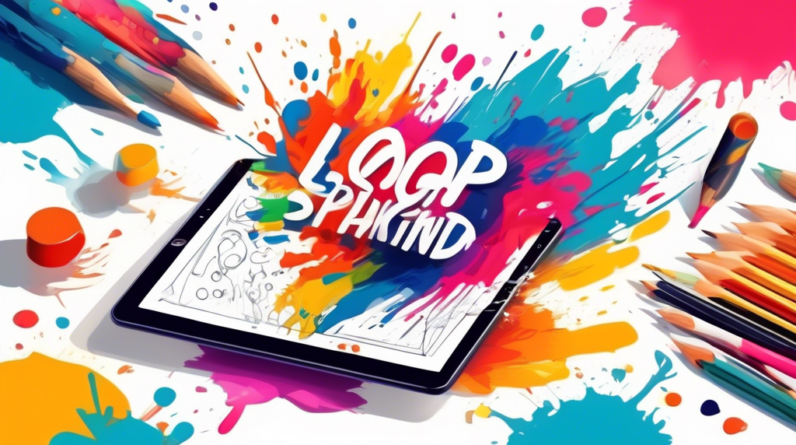
Table of Contents
How Do I Figure Out My Personal Brand?
In today’s digital age, building a strong personal brand is more important than ever. Your personal brand is the unique combination of skills, experience, and personality that you present to the world. It’s what makes you stand out from the crowd and attracts opportunities. But how do you figure out what your personal brand is? It’s a journey of self-discovery, and this article will guide you through each step.
1. Self-Reflection: Know Thyself
The foundation of your personal brand lies in understanding yourself. Before broadcasting your brand to the world, take a deep dive into your own inner landscape:
* **Values:** What truly matters to you? What principles guide your decisions and actions? Identifying your core values provides a compass for your personal brand.
* **Passions:** What activities ignite your enthusiasm and make you feel alive? Your passions will infuse your brand with authentic energy.
* **Skills and Expertise:** What are you good at? What knowledge and skills do you possess that set you apart? Recognizing your strengths is key to showcasing your value.
* **Personality:** Are you outgoing and charismatic, or more introspective and analytical? Your personality shapes how you communicate and interact with others, a vital part of your brand.
* **Experiences:** What life events, both personal and professional, have shaped you? Your experiences form a unique narrative that contributes to your brand’s story.
Journaling, meditation, and conversations with trusted friends can all aid in this process of self-discovery. The better you know yourself, the more authentic and impactful your personal brand will be.
2. Identify Your Target Audience
Like any successful brand, your personal brand needs a target audience. Who are you trying to reach? Consider:
* **Industry/Niche:** Are you focused on a specific industry or professional niche? Defining your area of expertise helps tailor your brand message.
* **Ideal Clients/Customers:** If you’re building a business, who are your ideal clients or customers? Understanding their needs and desires helps shape your brand’s value proposition.
* **Potential Employers:** If you’re seeking job opportunities, what kind of companies or organizations align with your values and aspirations? Targeting your brand towards specific employers increases your chances of success.
* **Collaborators and Mentors:** Who are the people you admire and aspire to work with? Positioning your brand to attract like-minded individuals can lead to valuable collaborations.
Once you have a clear picture of your target audience, you can tailor your personal brand messaging to resonate with them.
3. Craft Your Brand Story
Your personal brand is more than just a list of skills and accomplishments; it’s a story that captures your unique journey and aspirations. To craft your brand story, consider:
* **Your Why:** What drives you? What is your purpose and motivation? Communicating your why connects with people on an emotional level.
* **Key Experiences:** Highlight pivotal moments in your life that have shaped your skills and perspective. These stories make your brand relatable and memorable.
* **Challenges and Growth:** Share how you’ve overcome obstacles and learned from failures. Authenticity and vulnerability build trust.
* **Future Goals:** Where do you see yourself going? What impact do you want to make? Expressing your aspirations inspires and attracts opportunities.
Your brand story should be concise, engaging, and easily understood by your target audience. It’s a powerful tool for building connections and leaving a lasting impression.
4. Develop Your Online Presence
In today’s digital world, your online presence is often the first impression you make. Carefully curate your online persona to reflect your personal brand:
* **LinkedIn:** Your LinkedIn profile is your professional resume in the digital world. Highlight your skills, experience, and recommendations, and actively engage with your network.
* **Personal Website/Blog:** A personal website or blog provides a platform for showcasing your work, sharing your thoughts, and building your brand authority.
* **Social Media:** Choose social media platforms that align with your brand and target audience. Use these platforms to share valuable content, engage in conversations, and build relationships.
* **Content Creation:** Create high-quality content that showcases your expertise, insights, and personality. This could include blog posts, articles, videos, podcasts, or social media updates.
Be intentional about your online presence. Ensure that your profiles, content, and interactions all reflect the personal brand you want to project.
5. Network and Build Relationships
Personal branding is not a solo endeavor. Building relationships is essential for growing your network and expanding your brand’s reach:
* **Attend Industry Events:** Conferences, workshops, and meetups provide opportunities to connect with like-minded professionals and showcase your expertise.
* **Engage with Online Communities:** Participate in online forums, groups, and social media discussions relevant to your brand. Contribute valuable insights and build your reputation.
* **Reach Out to Mentors and Influencers:** Identify individuals you admire and respectfully reach out to connect and learn from their experience.
* **Collaborate on Projects:** Seek opportunities to collaborate with others on projects that align with your brand and showcase your skills.
Building genuine relationships with others helps amplify your personal brand and open doors to new opportunities.
6. Consistency is Key
Building a personal brand takes time and consistent effort. It’s not a one-time task, but an ongoing journey of growth and refinement. Stay committed to:
* **Regularly Updating Your Online Presence:** Keep your profiles, content, and interactions current and relevant to your evolving brand.
* **Engaging with Your Network:** Nurture your relationships by staying in touch, providing value, and supporting others.
* **Continuously Learning and Growing:** Embrace new experiences, acquire new skills, and stay informed about trends in your field.
* **Seeking Feedback and Making Adjustments:** Be open to feedback from others and refine your personal brand based on what you learn.
By consistently nurturing your personal brand, you ensure that it remains authentic, impactful, and aligned with your evolving goals.
Conclusion
Discovering and developing your personal brand is a journey of self-reflection, strategic planning, and consistent effort. By understanding yourself, identifying your target audience, crafting your brand story, building your online presence, networking with others, and remaining consistent, you can create a personal brand that opens doors to opportunities and helps you achieve your aspirations.






